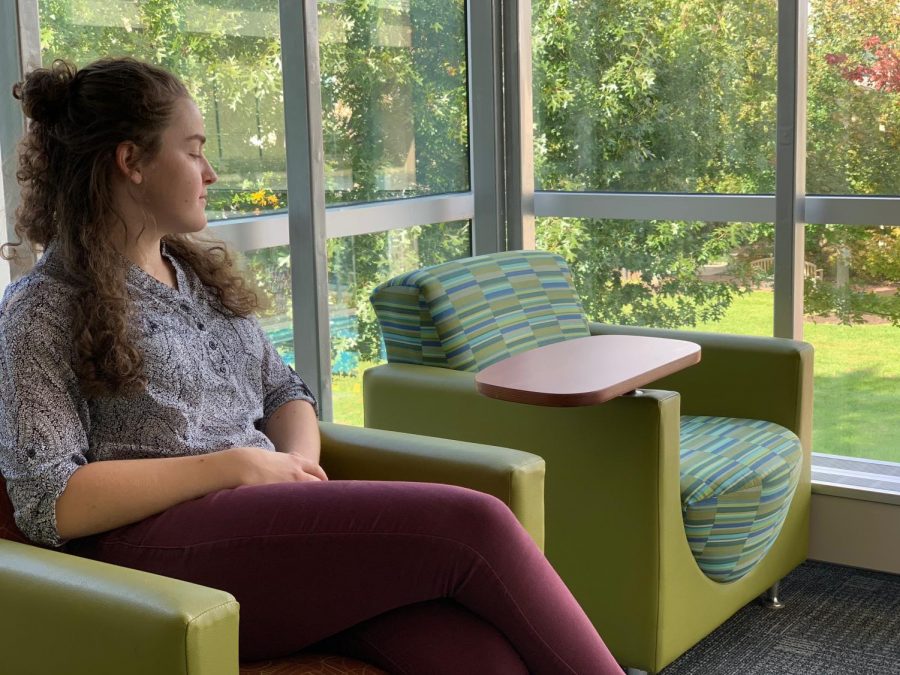Feeling Blue
One of the monthly “Food for Thought” events
A sorrowful look glancing out the window
October 2, 2018
Students are seated at a larger-than-normal table in RCF 401, ready to indulge themselves in an appetizing collection of catered food, and fully engaged in the topic of the day at Food for Thought: Feeling Blue. As September was National Suicide Prevention month, the Food for Thought series was led by students who struggled
to challenge their ideas of mental health and to aggrandize the importance of getting rid of various stigma wherein. Candace dePass, Assistant Director of Co-Curricular Programs, and Dr. Joy Stephens, a psychologist working in Counseling and Career Services were present to direct the session. “One thing that we like to do for today is to have people write down any questions related to depression, mental health, and suicide on the blank sheet of paper and put in this basket,” Dr. Stephens said. The students grabbed their pen to jot down their query, and the handful of folded papers were tossed into the basket and were ready to be answered while the students were eating.
One student withdrew a first question that read, “Why do people have a tendency of being judgemental toward people with mental illnesses instead of being supportive,” others chimed in saying that “people might lack empathy” and that “they do not have perspective on what those people have to go through” and “more often than not, people associate certain things with being normal, thus they ostracize those who are not identified as what they consider to be normal.” Debate continued with more questions: Why are some reluctant to seek solace from guidance counseling when in crisis? The answer varies depending on situation. However, the most common reasoning spoke by the participants was that people often fear being judged by a person who barely knows who they are. Yet, mental illnesses and depression that develop overtime cannot be realized without another person’s input. “There are many on-campus resources available for students. Not just when you are in crisis, it’s always good to position yourself there to establish connections and relationships to staff and other students where you feel more open and being able to talk to who are in similar situations,” Candace dePass stated.
When it is tempting for students to deem “I am alone” and “there seems to be no one to support me,” there are in fact many supporters from here, the school to the county around us who are willing to help them more than they would have imagined—but the first step is seeking help. Counseling and Career Services and the Wellness Center at Howard Community College often collaborate together to establish a variety of programs, raising awareness about maintaining mental health; Depression Screening and Suicide Prevention are held periodically throughout the semester in addition to individual counseling offered everyday for all Howard Community College credit students. Outside of Howard County there are also copious resources available at hand: Crisis Hotline, Grassroots, NAMI, Salvation Army, you name it. Most importantly, students should remind themselves of their family and friends who hearken to them in the time they are most vulnerable. “I hope by having this discussion, you will have a little bit more about empathy for other people but also a little bit more about kindness to yourself,” Stephens said. “College sometimes gives you a stressful time, but we strongly encourage you to pay attention to mental health as well.”
If you or anyone else experiences feelings of dread, sadness, or just needs someone to talk to, please do not hesitate to call 1-800-273-TALK. Their lines are open 24/7.






























Jeremy James • Sep 30, 2020 at 2:25 am
Thank you for raising awareness on an important topic !